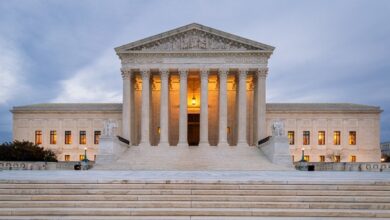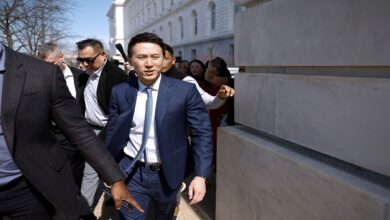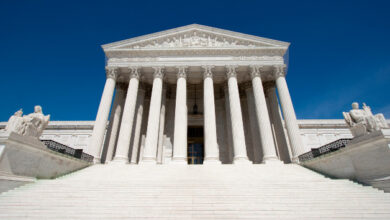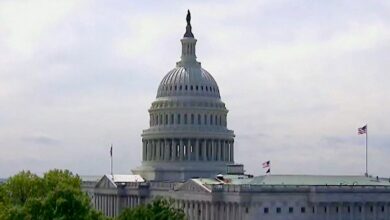UK Foreign Secretary David Cameron defends meeting with Trump in trip to the US

(LONDON) — U.K. Foreign Secretary David Cameron on Tuesday defended his meeting with former President Donald Trump, describing engagements between foreign envoys and political opposition leaders or major opposition candidates as standard practice.
“This was entirely in line with precedent of government ministers meeting with opposition politicians in the run-up to elections,” Cameron said.
“I remember when I was prime minister meeting Mitt Romney when he was a candidate. I remember Gordon Brown meeting Barack Obama when he was a candidate, and I think Tony recently had a meeting with Keir Starmer, the Labour leader, in Munich,” Cameron said, referring to Secretary of State Antony Blinken. “So these things are entirely proper.”
Cameron, a former U.K. prime minister who returned to his country’s government last year, told reporters at a State Department briefing that he and Trump had a “private meeting” where they “discussed a range of important geopolitical subjects,” but he declined to be more specific.
The two met at Trump’s Mar-a-Lago club in Florida on Monday, people familiar with the meeting confirmed. Cameron was the first U.K. official to meet with Trump since Trump left office in 2021.
The Trump campaign said in a statement that he and Cameron had dinner together and talked about “the upcoming US and UK elections, policy matters specific to Brexit, the need for NATO countries to meet their defense spending requirements, and ending the killing in Ukraine,” as well as their “mutual admiration for the late Queen Elizabeth II.”
Cameron and Trump have disagreed on issues before, as when Cameron — as prime minister — denounced Trump’s proposed ban on Muslims entering America, which Trump called for during the 2016 U.S. presidential campaign and later modified to a narrower restriction once he entered the White House.
Cameron in 2016 called the Muslim ban proposal “divisive, stupid and wrong,” and Trump soon responded that “it looks like we are not going to have a very good relationship, who knows.”
Cameron is also in the U.S. to meet with Biden administration officials including Blinken, who told reporters on Tuesday that “it is, as always a great pleasure to have Foreign Secretary Cameron here at the State Department in Washington.”
“We’ve had an ongoing conversation and ongoing consultation about the major challenges that both of our countries are facing and facing together, and today was another important chapter in those conversations,” Blinken said.
At the briefing on Tuesday, Cameron suggested his talk with Trump was on matters like conflict in the Middle East, support for Ukraine against Russia’s invasion and strengthening NATO that mirrored his public talking points.
“Whoever I’m talking to, I tend to make the same points — which is that we’ve got to do everything we can this year to get NATO in its strongest possible shape for its 75th anniversary,” Cameron said. “And getting everyone up to 2% [in defense spending], having the new members joining — Sweden and Finland — having the strongest possible alliance, [that is] the best thing we can do.”
Cameron then recapped his case for backing Ukraine’s war efforts, which has become increasingly divisive in America as some Republicans argue funds can be better spent on domestic priorities after more than two years of support.
“They’re fighting so bravely. They’re not going to lose for want of morale. The danger is we don’t give them the support that they need,” Cameron said. “And I make that argument to anyone who will listen to me: I argue that it is extremely good value for money for the United States and for others, perhaps for about 5 or 10% of your defense budget, almost half of Russia’s prewar military equipment has been destroyed without the loss of a single American life. This is an investment in United States security.”
Pushing ahead to his sessions with lawmakers from both sides of the aisle on Capitol Hill, Cameron said he was reluctant to wade into the debate but was spurred on by his convictions.
“I always do this with great trepidation. It’s not for foreign politicians to tell legislators in another country what to do. It’s just that I’m so passionate about the importance of defending Ukraine against this aggression that I think it is absolutely the interests of U.S. security,” he said.
ABC News’ Katherine Faulders, Lalee Ibssa, Soo Rin Kim and Morgan Winsor contributed to this report.
Copyright © 2024, ABC Audio. All rights reserved.






